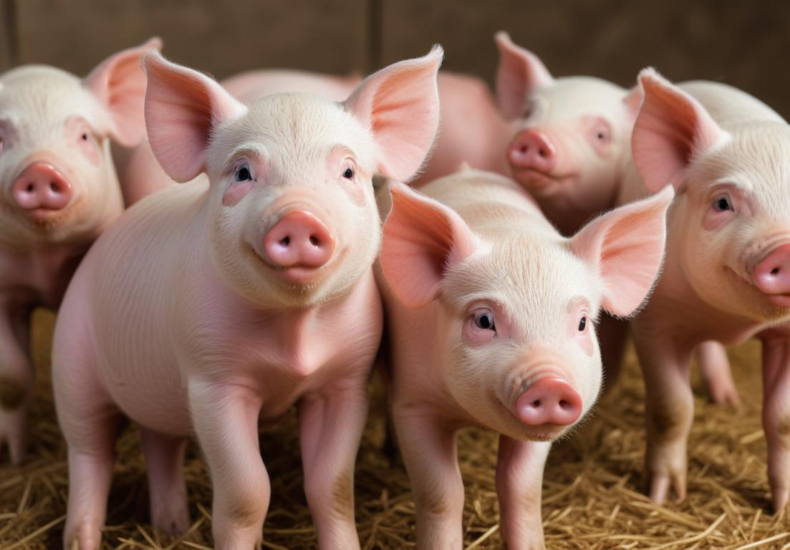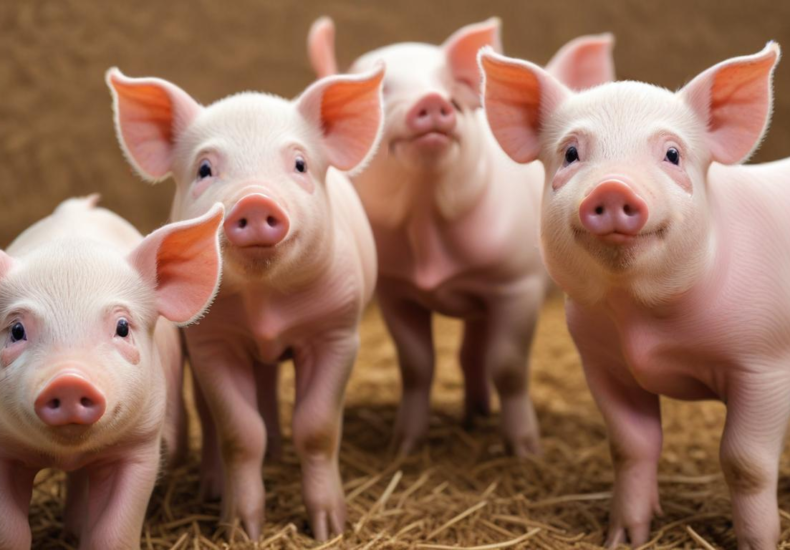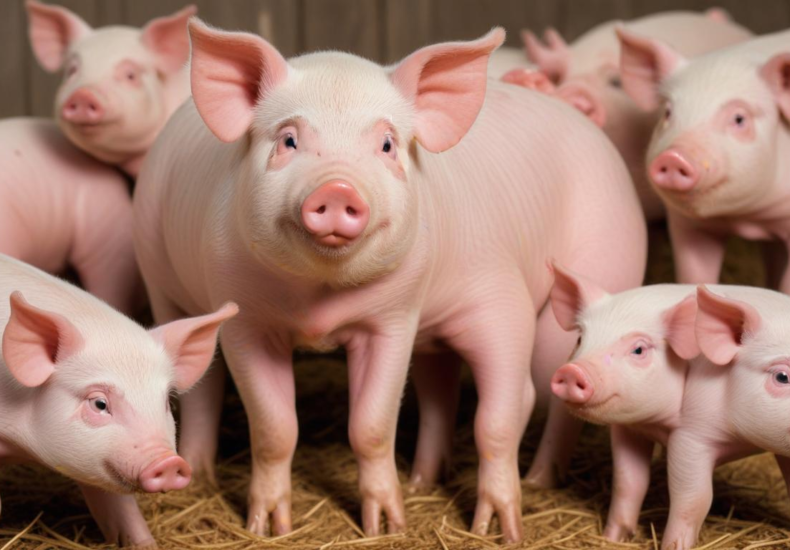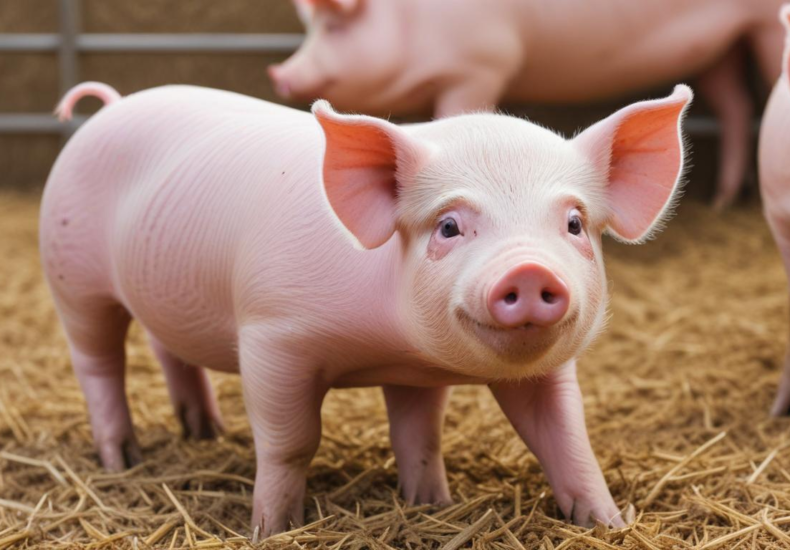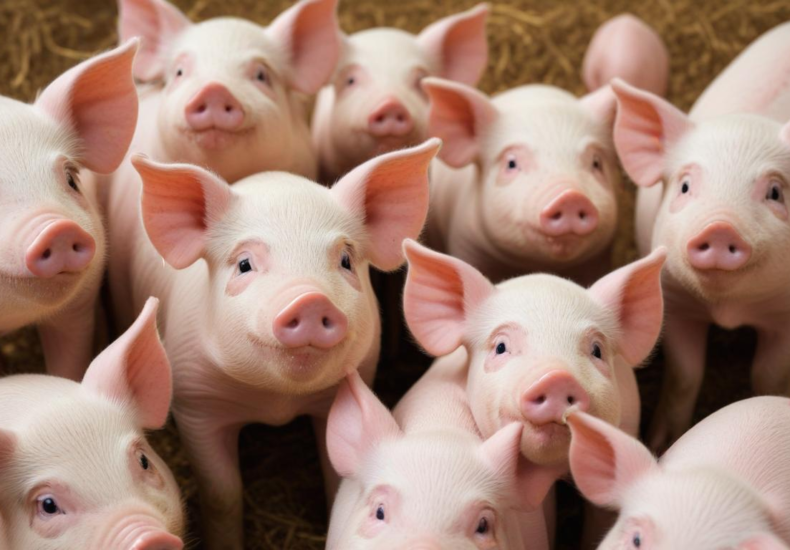Tag: traits
the impact of genes on pig reproduction
Genetics significantly impacts reproductive traits in pigs, influencing everything from litter size to fertility rates. Polygenic traits, meaning many genes affect them, show breeders the importance of combining genetic and environmental factors for optimizing reproductive performance. Recent advancements, including genomic selection and epigenetic research, offer promising new strategies for enhancing fertility and ensuring the sustainability of pork production. As the interplay of genetics, technology, and animal welfare evolves, understanding these complexities will be key to improving herd performance and meeting industry demands.
how pig DNA affects reproduction
The reproductive success of pigs hinges on a complex interplay of genetic traits encoded in their DNA, impacting litter size, fertility rates, and overall reproductive efficiency. Recent advances in genomic technologies allow breeders to identify specific genetic markers that enhance traits such as hormone regulation and gamete quality. As researchers delve deeper into these connections, the potential for targeted breeding programs to maximize reproductive success grows, raising intriguing possibilities for swine production and meeting global demands for pork.
why pig breeding programs focus on genetics
Genetics is a cornerstone of successful pig breeding, influencing traits from growth rates to disease resistance. By employing advanced techniques like genomic selection and CRISPR-Cas9, breeders can enhance not only productivity but also animal welfare. As the pork industry evolves, the integration of data analytics and a focus on sustainable practices are reshaping breeding strategies. This dynamic approach promises to optimize pig populations for economic viability while addressing ethical concerns, ensuring a robust future for pork production. What innovative methods will define the next generation of pig breeding?
the basics of Mendelian inheritance in pigs
Mendelian inheritance is foundational in understanding how genetic traits are transmitted in pigs, influencing everything from coat color to growth rates. Breeders leverage principles like dominant and recessive alleles to predict outcomes and enhance desirable traits. Innovations in genomic technologies promise to further refine breeding practices, allowing for more precise selections and improved health management. As complexities of genetic interactions unfold, pig breeders are equipped to navigate challenges while paving the way for sustainable practices in animal husbandry. Discover the intricate relationship between genetics and pig breeding.
breeding pigs for improved meat quality through genetics
Genetic selection strategies in pig breeding significantly enhance meat quality by focusing on traits that impact sensory and nutritional aspects. Advanced techniques such as genomic selection and marker-assisted breeding enable breeders to identify and select for desirable characteristics, including marbling, tenderness, and growth rates, from an early age. As molecular genetics evolves, understanding the interplay of various traits and their implications for consumer satisfaction becomes crucial, shaping the future of pork production through improved efficiency and sustainability.
inbreeding effects on pig genetics
Inbreeding in pigs significantly impacts genetic diversity, raising concerns about health, reproduction, and adaptability. As closely related individuals mate, the risk of inherited disorders increases, leading to lower fertility rates, smaller litter sizes, and altered behaviors that can disrupt social structures. Understanding these effects is crucial for breeders aiming to maintain robust populations. Strategies such as outcrossing, crossbreeding, and genomic selection offer pathways to enhance genetic variability, ensuring long-term sustainability and improved performance in pig farming. The dynamics of pig genetics call for innovative approaches to safeguard the future of breeding programs.
understanding pig genetics for better breeding
The field of pig genetics delves into the hereditary traits that shape swine production, influencing growth performance, reproductive success, carcass quality, and disease resilience. Breeders leverage advances in genomic technologies, precision breeding, and data analytics to enhance efficiency and productivity. As they navigate these complexities, a focus on sustainability and consumer preferences emerges, presenting both challenges and opportunities for the pork industry’s future. Discover how these trends are revolutionizing breeding practices and shaping the next generation of swine.
why some pigs have better feed efficiency genetically
Certain pigs possess unique genetic traits that enable superior feed efficiency, allowing them to convert feed into body mass more effectively than their peers. Selective breeding practices over generations emphasize specific traits linked to enhanced growth and metabolism. As researchers unravel the genetic factors at play, the potential for optimizing swine production not only promises increased productivity but also significant economic benefits for farmers. The interplay between genetics, feed composition, and management strategies shapes the future of sustainable and efficient pork production systems.
understanding recessive and dominant pig traits
Genetic inheritance in pigs shapes their physical and behavioral traits through the interplay of dominant and recessive alleles. This intricate process influences breeding decisions, impacting herd health and productivity. By understanding how these traits manifest, farmers can strategically select breeding pairs to enhance desirable characteristics, optimize production, and manage potential recessive challenges. As breeders delve deeper into the genetics of their stock, they unlock the potential for improved quality and efficiency in pig farming, navigating a landscape where informed choices yield significant rewards.
how artificial selection impacts pig genetics
Artificial selection in pig breeding has transformed both their genetic traits and production efficiency. By carefully selecting specific pigs for breeding, farmers have improved growth rates, meat quality, and reproductive performance. However, this focus on certain traits raises concerns about genetic diversity and animal welfare. The balance between enhancing desirable characteristics and preserving genetic variation remains a critical challenge as advanced technologies revolutionize breeding practices, paving the way for a sustainable future in pig genetics.
Archives
Calendar
| M | T | W | T | F | S | S |
|---|---|---|---|---|---|---|
| 1 | ||||||
| 2 | 3 | 4 | 5 | 6 | 7 | 8 |
| 9 | 10 | 11 | 12 | 13 | 14 | 15 |
| 16 | 17 | 18 | 19 | 20 | 21 | 22 |
| 23 | 24 | 25 | 26 | 27 | 28 | |
